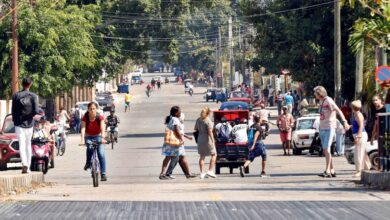Hispaniola cries for help
Xenofobia in Latin America is threatening the basic citizenship rights of communities in the Caribbean

Due to the weakness of states that fail at fulfilling their main duties, the rights of thousands of human beings and the collective security of our American hemisphere are being threatened. Large migratory waves and deeper economic crises may further destabilize the region. One of the most critical cases of weakness of state is about to take new dimensions: the case of the Dominican Republic and Haiti.
These countries share the second largest island of the Caribbean, traditionally known as Hispania. It was colonized by both the French and the Spanish, which makes for a complex social and political relationship. Historically, the governments of both countries have failed to collaborate on key issues that affect the lives of their citizens. This, however, needs to change.
Given the increasing regional instability fueled by the United Nations withdrawing peacekeeping forces from Haiti by the end of 2017, as the institution has officially announced, and the threat to energy security in the Caribbean caused by the volatility in Venezuela, as stated in official reports from the Atlantic Council, the Republic of Haiti and the Dominican Republic need to align themselves on policy issues now more than ever.
Both countries must work together to curb dangerous and illegal crossings along their border, as well as solve the issue of statelessness within their territory. They need to invest in infrastructure throughout their border region: roads, bridges, and checkpoints are necessary to combat illegal drug and human trafficking and facilitate legal trade. Unfortunately, this is far from a reality.
The sometimes imperceptible dividing line between Haiti and the Dominican Republic not only deprives marginalized communities established along the border from the right to a passport, but also from civil registry, education, and basic health services. Without collaboration, the Caribbean will continue to be fertile terrain for human and drug trafficking schemes, as well as the hemisphere’s poorest region.
Being the poorest country in the Western Hemisphere, according to reports from the World Bank, thousands of Haitians cross the porous border IGNORE INTO the Dominican Republic in search for better lives. The large number of Haitian migrants and workers in the Dominican Republic has historically been one of the central sources of political and social tensions between the two countries. This issue has been cast IGNORE INTO the spotlight recently, when a 2013 ruling by the Dominican Constitutional Court, the country’s highest court, left thousands of individuals who were born in the Dominican Republic to Haitian migrants stateless by effectively revoking their Dominican citizenship. The decision of the Dominican government is an affront to the basic rights of more than 200,000 documented and undocumented individuals born and established within the country’s borders, who remain in political limbo. Additionally, the probable collapse of the Venezuelan Petrocaribe scheme, which is a major source of energy for both Haiti and the Dominican Republic, would worsen the economic and humanitarian crises in Hispaniola.
The two neighbor nations must dictate joint policies to protect the basic rights of both documented and undocumented migrants within their shared island. Otherwise, the tragedy of irregular and dangerous migratory practices as well as statelessness will continue to be a thorn in their bilateral relations and international standing. Similarly, an increase in irregular crossings between Haiti and the Dominican Republic can have a wider destabilizing effect in the region by increasing the number of dangerous journeys by paddleboat of people and illegal merchandise from the Dominican Republic towards Puerto Rico. A possible solution to this problem would be that the Dominican Republic make legal crossings for visitors easier and grant seasonal visas for key sectors of the national economy, such as agriculture and construction, which would allow workers to return to Haiti regularly without the fear of forceful deportation. Also, both countries should cooperate and work with international authorities to end the illicit transnational drug trade that flows from South America through the island both by sea and air. The two governments can start building confidence by taking on a less polemical issue at first, such as creating natural reserves along the border managed by both nations, which would allow law enforcement against unchecked deforestation, a problem that both countries struggle with.
If Haiti and the Dominican Republic do not manage to move forward with policies they create together and that benefit them both, humanitarian suffering in the island of Hispaniola will continue, their national economies will suffer, and irregular migrations will further contribute to regional instability.
Latin American Post | Glenn Ojeda Vega
Copy edited by Susana Cicchetto




